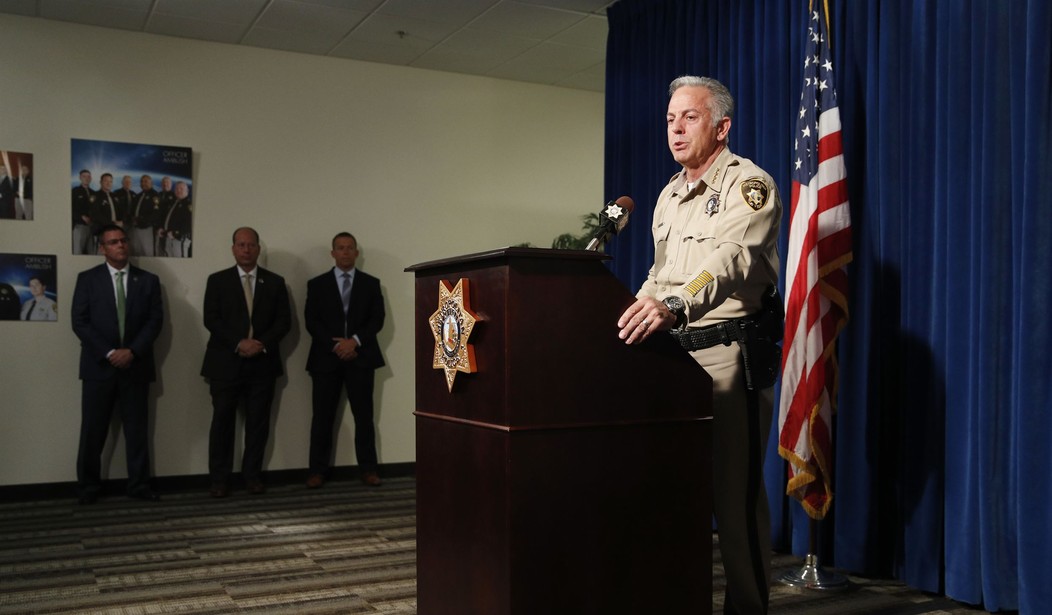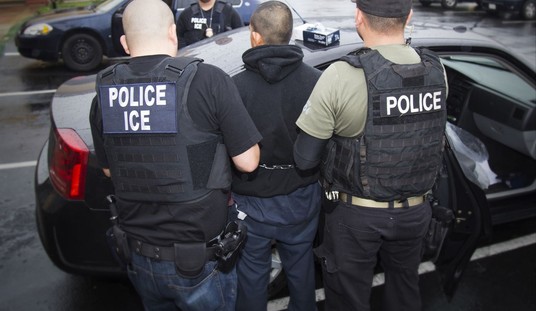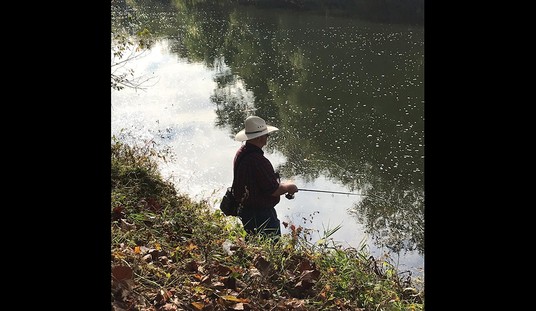(The opinions expressed by guest contributors are their own and do not necessarily represent the views of RedState.com.)
By Marcos Lopez
We are quickly approaching the regularly scheduled 120-day spectacle that occurs every biennium. As our duly elected legislators and their special interest buddies start to congregate in Carson City, we are well served to remember the warnings of beloved American writer and famous former Nevadan resident, Mark Twain: “No man’s life, liberty, or property are safe while the legislature is in session.”
The pageantry began last week with the State of the State Address, in which the governor presented his vision and tried to set the tone for the next four months. Here, we review the good, the bad, and the ugly regarding his comments.
The Good
The highlight of Gov. Lombardo’s speech was on taxes and spending. He called for tax cuts and increased savings rather than committing all the state’s record revenues to new spending.
It was encouraging to hear his budget will include a one-year fuel tax holiday and cuts to the modified business tax and the commerce tax.
Nevadans have recently suffered through some of the highest gas taxes in the nation. The proposed tax holiday will be a short-term boon for everyday working families across the Silver State, even if the jury is out on tax holidays generally. Nevadans pay almost 70 cents in taxes per gallon and this holiday could save taxpayers approximately $250 million dollars.
Gov. Lombardo proposed expanding the exemption to the commerce tax and a modest rate reduction in the modified business tax. These are taxes on a firm’s gross receipts and private-sector payroll, respectively.
Both taxes are highly inefficient and Nevada Policy has proposed eliminating each in the past. In particular, the commerce tax was based on a highly unpopular proposal that was defeated by nearly 80 percent of voters, and the Nevada Controller’s Office showed all budget priorities could have been funded without its passage in 2015.
The governor’s Executive Budget reveals that Nevada still retains significant cash on hand from federal aid during the pandemic, and will begin the new budget cycle with a $1.1 billion balance, easing all fiscal pressure and creating the temptation for lawmakers to spend on new programs.
Lawmakers made this mistake as revenues ballooned between 2003 and 2007, only to face an even greater shortfall once a recession inevitably arrived. Caution should again be warranted, with a majority of economists predicting a recession will materialize later this year.
Fortunately, Gov. Lombardo’s executive budget partially prepares for this likelihood by increasing commitments to the state’s Rainy Day Fund by $630 million dollars while raising prior caps on the total that could be put away for future downturns.
He rhetorically committed to “reserving more than $1 dollar in savings for every new dollar in general fund spending,” which would effectively walk the line between prodigality and prudence.
When Pew looked at the state’s reserves late last year, it found Nevada’s reserves would last slightly less than a month. So Lombardo’s commitment to increased savings may allow Nevada to better prepare for economic turbulence.
Finally, Lombardo committed to expanding Nevada’s Opportunity Scholarships, a program that grants tax credits to firms that donate to scholarship-granting organizations for low-income K-12 students in Nevada.
For far too long, Nevadan parents have had to endure some of the worst schools in the nation. Empirical evidence shows that choice not only grants families immediate access to better options, but over time public schools improve when faced with competition. Lombardo’s proposal is modest – he asks only that the total amount of tax credits available for scholarships increase from $6.6 million to $25 million annually – so he should defend this proposal vigorously by leveraging other legislation if necessary.
The same strategy should be sought regarding three key election reforms he mentioned – voter ID, modernizing vote counting, and independent redistricting.
Trust in elections is fundamental to the preservation of a democratic republic. Unfortunately, this has waned in recent years as large-scale changes were made to election procedures during the pandemic.
More than a third of Americans indicated they were not confident in the accuracy of electoral outcomes in a recent Gallup poll. Regardless of one’s position on this topic, restoring confidence in elections should be an overriding goal of all officeholders.
The Heritage Foundation currently ranks Nevada at number 50 among the states for the strength of its election laws. Nevada’s lack of requirements for individuals to show identification when they vote is a key reason for this ranking.
The Bad
While Lombardo seeks to make progress in key areas, he also proposes questionable new spending items. These include the newly proposed Nevada Way Fund, expanded funding for Pre-K, expanded subsidization of the Millennium Scholarship program, and across-the-board raises for state employees.
The Nevada Way Fund seeks to make “transformational economic development projects and critical infrastructure needs in areas such as emerging markets.” In other words, the Nevada Way Fund seems to be a reincarnation of the Catalyst Fund to facilitate state-directed economic development.
During the Sandoval administration, the Catalyst Fund was used to direct taxpayer funding toward politically connected firms that would receive it as private capital contributions. This essentially forced taxpaying businesses to subsidize their prospective competitors and arguably violated the state’s constitutional Gift Clause. The new governor should resist this distortive impulse.
Public funding for Pre-K enrollment may sound enticing, but evidence shows that Pre-K education has no lasting improvements in educational outcomes and any educational gains dissipate by first grade.
The Millennium Scholarship was established by Gov. Kenny Guinn as a legacy of Nevada’s share of the multi-state tobacco settlement in the 1990s and was intended to be funded exclusively through this pot of money. Over the years, however, low eligibility requirements have combined with rapid population growth to make far more students eligible than originally anticipated. Thus, the program has far outstripped available funding and required ever-larger subsidies from the state general fund to remain solvent.
Ideally, the Millennium Scholarship program could be placed on the pathway to solvency by making it a competitive, merit-based award with total allocations limited to the original funding source.
Lastly, the executive budget proposes a 12 percent raise for all state employees, including a $2,000 retention bonus billed as a bid to retain and recruit more state employees.
While it is true that state employees generally earn less than peers in local government, earnings by Nevada state employees are slightly above the national median already, with an average salary of $62,762, according to data from the U.S. Bureau of Labor Statistics.
That is higher than the average salary of Nevada’s private-sector workers ($58,689) who support those salaries and faced state-imposed layoffs during the pandemic. Those figures do not include the value of benefits, although 50-state comparisons indicate Nevada’s government workers already receive both the highest wage premium in the nation relative to private-sector workers and the most generous benefits package in the nation.
The Ugly
Despite many encouraging elements of Gov. Lombardo’s vision, there are elements that go beyond bad and fit in the ugly category. Chief among these is the expansion of Nevada’s double-dipping program for public employees. As Gov. Lombardo said in his speech: “And, to further address the immediate shortage, we should allow retired educators to draw both their retirement and a salary, with no strings attached and no unnecessary administrative hurdles to clear.”
This double-dipping was prohibited in the original language of The Nevada Public Employees’ Retirement Act because it is prone to abuse. The Guinn Administration, however, formalized double-dipping by asking the legislature to create a process whereby state administrators could declare any position as suffering from a Critical Labor Shortage (CLS).
The CLS program was immediately abused as Gov. Guinn used it to give pay raises to friends and colleagues. State records show nearly half the individuals who use this program never even leave public employment – they officially retire one day and return to work the next day while drawing both their regular salary and a lifetime pension.
State pension administrators have testified that this program depletes the system’s assets and asked the legislature to eliminate it. However, the program allows special favors and has been repeatedly extended and expanded. In 2008, the funds actuaries concluded the retirees who “immediately returned to their positions would not have otherwise retired if there was no opportunity to be rehired under critical labor shortage exemption.”
There are far better ways to recruit teachers including allowing for alternative certifications, easing licensing requirements, and universal recognition of teaching credentials gained in other states. The CLS exemptions should face elimination and not expansion.
Finally, Gov. Lombardo proposed a massive, $2 billion growth in spending on government-run schools. This growth level roughly conforms to recommendations made two years ago by a committee chartered by Gov. Sisolak and the Democratic legislature. Through revenue growth, Lombardo was able to achieve that figure without resorting to the tax increases called for by that committee.
However, state spending on education is not correlated with student performance. Washington, D.C., is the top-spending jurisdiction in America and boasts the worst performance, according to data from the U.S. Department of Education.
Nine states currently spend less than Nevada and all but two outperform Nevada. Idaho is the lowest-spending state but is in the top 10 in terms of performance. By contrast, specific policies are closely associated with high student achievement. Nevada Policy has laid out these policies in a comprehensive platform of school reform.
Although many of Gov. Lombardo’s proposed spending initiatives appear poised to appeal to key interest groups, they fail an objective data-based evaluation. This is not unusual in the realm of public policy wherein negotiation and coalition-building are vital.
However, Gov. Lombardo has brought forward a series of encouraging prospective reforms and he should leverage his authority to sign or veto legislation to ensure he can deliver on those proposals.
(Marcos Lopez is the outreach and coalitions director for Nevada Policy.)














Join the conversation as a VIP Member